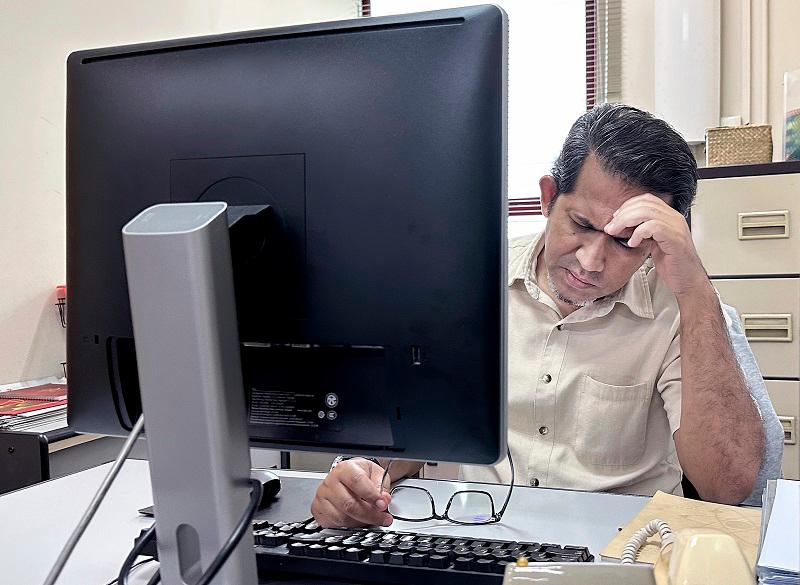STRESS often arrives uninvited – disguised as the chaos of moving houses, a sting of financial setbacks or a shock of an unexpected expense.
Even for those of us who practise mindfulness, there are days when the usual advice – breathe deeply, stay in the moment, focus on gratitude – feels hollow.
The mind continues to race, the chest tightens and stress refuses to let go. So, what do you do when mindfulness does not seem to work? How do you recalibrate yourself when everything feels like too much?
Stressors – external pressures that trigger stress – are an inevitable part of life and can be categorised into various types.
Acute stressors are short-term challenges that demand immediate attention, such as a sudden car breakdown or a looming deadline.
Chronic stressors, on the other hand, are long-term pressures that slowly erode your sense of control, such as financial difficulties or ongoing work demands.
Major life events, even positive ones like moving to a new house or getting married, often bring a mix of stress and excitement.
Then there are the daily hassles, the minor but persistent irritations, such as traffic jams, misplaced keys or an overflowing inbox.
Individually, they seem manageable, but collectively, they can weigh us down. Recognising the type of stressor you are dealing with can help you address it more effectively.
Take the example of moving to a new home. It is supposed to be a fresh start, full of hope and new beginnings. However, as you sift through boxes, discover unplanned repair costs and juggle utility transfers, excitement morphs into exhaustion.
Similarly, financial stress compounds as one unplanned expense snowballs into another – a leaking pipe, a sudden car breakdown or a medical bill. These challenges are compounded by the unpredictability of life, making it easy to feel cornered and overwhelmed.
When mindfulness techniques fail to bring relief, recalibrating your inner compass becomes essential.
Recalibration begins with an acceptance of the discomfort, a simple acknowledgment: “I’m feeling overwhelmed, and that is okay.” This small shift from resistance to acceptance often opens the door to clarity.
Stress loses some of its grip when you stop fighting it. Once acceptance sets in, breaking down what feels insurmountable is key. Large problems, like financial strain or relocation woes, often appear infinite because we view them as a whole.
Start by identifying small, actionable steps. For instance, if finances are causing anxiety, list your expenses, separating them into immediate needs, manageable delays and unnecessary items. This does not solve the problem but creates structure – and structure provides a sense of control.
Physical movement can also be a game-changer when your mind feels stuck. Take a short walk, rearrange a room or even engage in an activity as simple as folding clothes.
Movement shifts the body’s energy and, in doing so, disrupts negative thought loops. It is a reminder that even in stillness, small actions can propel us forward.
Recalibrating also involves shifting perspective. When faced with stress, reframing can help you move from helplessness to problem-solving.
Instead of dwelling on “Why does this always happen to me?” try “What is the one thing I can do to make this easier?” This is not about toxic positivity or ignoring the weight of your emotions – it is about acknowledging them and permitting yourself to act, even in small ways.
It is worth noting that recalibration is not just about solving problems; it is also about finding joy in the middle of the mess. This may mean taking a deliberate pause to enjoy a hot cup of tea, watching a comforting show or calling a friend for a quick chat. These moments may feel insignificant, even indulgent, but they provide mental space – much like a deep breath in the middle of chaos.
Stressors will always exist, but psychological resilience is what allows us to navigate them with grace.
Psychological resilience, the ability to adapt and recover from life’s challenges, is not a fixed trait. It can be cultivated through practice and deliberate actions. This resilience does not always look like a grand comeback or a perfectly meditative mind. Sometimes, it is simply surviving a tough day and choosing to keep going.
Whether your stress stems from shifting houses, financial pressures or life’s unexpected curveballs, remember this: recalibration is not about being perfect – it is about finding your footing, even when the ground feels shaky.
Life does not demand that you always feel good; it simply asks that you keep moving forward, one small step at a time.
Dr Praveena Rajendra is a certified mental health and awareness practitioner specialising in narcissistic abuse recovery. Comments: letters@thesundaily.com









